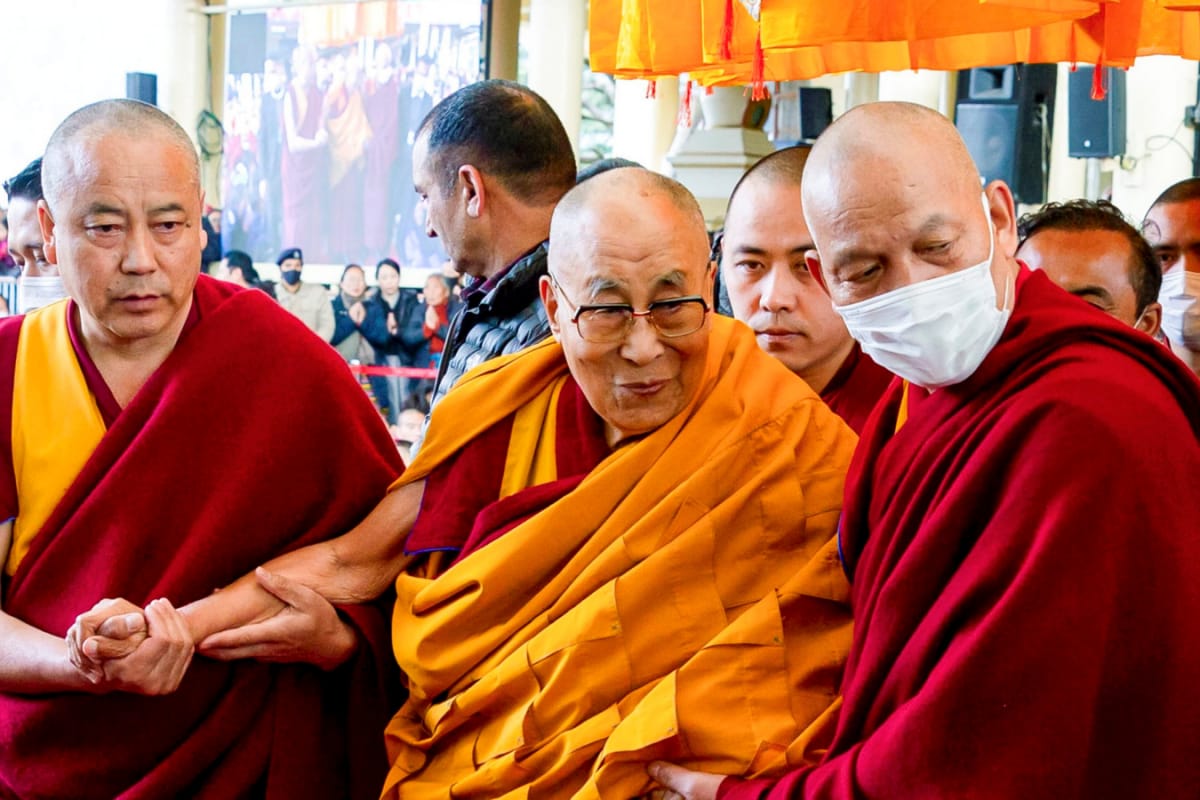

As the Dalai Lama approaches his 90th birthday, he has reaffirmed the authority of the Gaden Phodrang Trust in recognizing his future reincarnation, pushing back against China's claims of control over the process. This statement, made on Wednesday, July 2, 2025, is a significant move in the ongoing debate over the succession of the Dalai Lama and the future of Tibetan Buddhism.
The Dalai Lama has long maintained that the Tibetan people should decide the future of his role. In a statement issued to the Tibetan government-in-exile, he stated that the institution of the Dalai Lama will continue after his death and that the Gaden Phodrang Trust has the sole authority to recognize the future reincarnation. This declaration is expected to impede Chinese control over his succession. In a statement made in 2011, the Dalai Lama said that if the reincarnation should continue, the responsibility would primarily rest on the concerned officers of the Dalai Lama's Gaden Phodrang Trust. They should consult with various heads of the Tibetan Buddhist traditions and carry out the procedures of search and recognition in accordance with past tradition.
China, which has ruled Tibet since 1950, insists that it has the right to "identify in China" the reincarnation of the Dalai Lama. They claim that the reincarnation of Living Buddhas, including the Dalai Lama, must comply with Chinese laws and regulations, including search and identification in China, lot-drawing from a golden urn, and central government approval. Li Decheng, deputy director general of the official China Tibetology Research Centre, stated that recognizing a Dalai Lama reincarnation abroad is illegal and does not conform to religious rituals, historical customs, or China's management methods. China's Foreign Ministry insists that the Chinese government issued Regulations on Religious Affairs and Measures on the Management of the Reincarnation of Living Buddhas.
The Dalai Lama and his followers reject China's claims, stating that the choice of his reincarnation is a matter for Tibetan Buddhists alone. In his new book, "Voice for the Voiceless," the Dalai Lama stated that his successor would be born in the "free world," outside of China, so that the traditional mission of the Dalai Lama can continue. This mission includes being the voice for universal compassion, the spiritual leader of Tibetan Buddhism, and the symbol of Tibet embodying the aspirations of the Tibetan people.
The Dalai Lama's stance is supported by the U.S. government, which has stated that any interference by the Chinese government in the reincarnation process will be met with sanctions. This position is solidified in the Tibetan Policy and Support Act of 2020, which includes provisions for holding Chinese officials accountable for such interference. The United States views Beijing's attempts to control the reincarnation as a violation of religious freedom and Tibetan cultural tradition.
The conflict over the Dalai Lama's succession is not new. The Chinese government has a history of interfering in the selection of Tibetan religious leaders. In 1995, the Chinese government abducted Gedhun Choekyi Nyima, the boy recognized by the Dalai Lama as the 11th Panchen Lama. China has already installed its own Panchen Lama, who is a key figure in identifying the next Dalai Lama.
The Dalai Lama's decision to address his succession before his death is unprecedented in Tibetan Buddhist tradition. Traditionally, the search for the Dalai Lama's reincarnation begins after the present Dalai Lama's death, with senior monks interpreting signs, consulting oracles, and searching for a child who exhibits qualities of the previous Dalai Lama. By naming his successor while still alive, the Dalai Lama hopes to ensure that the reincarnation process remains free from Chinese interference. The announcement is set to be the most consequential in modern Tibetan history, one that will shape the future of Tibetans' seven-decade-long struggle to preserve their religious and cultural freedoms.